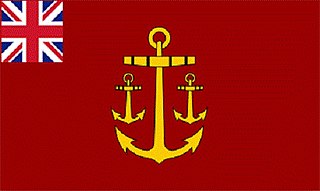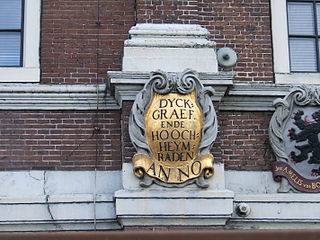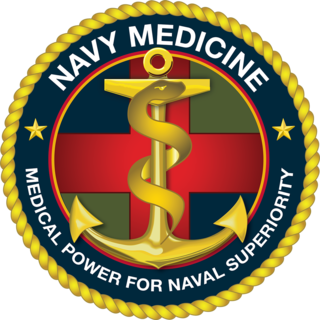
The Seventh-day Adventist Church is a Protestant Christian denomination which is distinguished by its observance of Saturday, the seventh day of the week in Christian and Jewish calendars, as the Sabbath, and its emphasis on the imminent Second Coming (advent) of Jesus Christ. The denomination grew out of the Millerite movement in the United States during the mid-19th century and it was formally established in 1863. Among its co-founders was Ellen G. White, whose extensive writings are still held in high regard by the church. Much of the theology of the Seventh-day Adventist Church corresponds to common evangelical Christian teachings, such as the Trinity and the infallibility of Scripture. Distinctive post-tribulation teachings include the unconscious state of the dead and the doctrine of an investigative judgment. The church is known for its emphasis on diet and health, including adhering to Kosher food laws, advocating vegetarianism, and its holistic understanding of the person. It is likewise known for its promotion of religious liberty, and its conservative principles and lifestyle.

A chaplain is, traditionally, a cleric, or a lay representative of a religious tradition, attached to a secular institution, or a private chapel.

The United States Public Health Service is a collection of agencies of the Department of Health and Human Services concerned with public health, containing eight out of the department's eleven operating divisions. The Assistant Secretary for Health oversees the PHS. The Public Health Service Commissioned Corps (PHSCC) is the federal uniformed service of the PHS, and is one of the eight uniformed services of the United States.

The Metropolitan Community Church (MCC), also known as the Universal Fellowship of Metropolitan Community Churches (UFMCC), is an international Protestant Christian denomination. There are 222 member congregations in 37 countries, and the fellowship has a specific outreach to lesbian, gay, bisexual, and transgender families and communities.

HM Customs and Excise was a department of the British Government formed in 1909 by the merger of HM Customs and HM Excise; its primary responsibility was the collection of customs duties, excise duties, and other indirect taxes.

A tribunal, generally, is any person or institution with authority to judge, adjudicate on, or determine claims or disputes—whether or not it is called a tribunal in its title. For example, an advocate who appears before a court with a single judge could describe that judge as "their tribunal." Many governmental bodies that are titled as "tribunals" are described so in order to emphasize that they are not courts of normal jurisdiction. For example, the International Criminal Tribunal for Rwanda was a body specially constituted under international law; in Great Britain, employment tribunals are bodies set up to hear specific employment disputes. In many cases, the word tribunal implies a judicial body with a lesser degree of formality than a court, in which the normal rules of evidence and procedure may not apply, and whose presiding officers are frequently neither judges, nor magistrates. Private judicial bodies are also often styled "tribunals." The word tribunal, however, is not conclusive of a body's function—for example, in Great Britain, the Employment Appeal Tribunal is a superior court of record.
A government or state agency, sometimes an appointed commission, is a permanent or semi-permanent organization in the machinery of government that is responsible for the oversight and administration of specific functions, such as an administration. There is a notable variety of agency types. Although usage differs, a government agency is normally distinct both from a department or ministry, and other types of public body established by government. The functions of an agency are normally executive in character since different types of organizations are most often constituted in an advisory role—this distinction is often blurred in practice however, it is not allowed.

Professional diving is diving where the divers are paid for their work. The procedures are often regulated by legislation and codes of practice as it is an inherently hazardous occupation and the diver works as a member of a team. Due to the dangerous nature of some professional diving operations, specialized equipment such as an on-site hyperbaric chamber and diver-to-surface communication system is often required by law, and the mode of diving for some applications may be regulated.

The Navy Board and formerly known as the Council of the Marine or Council of the Marine Causes was the commission with responsibility for day-to-day civil administration of the Royal Navy between 1546 and 1832. The board was headquartered within the Navy Office.

Burial at sea is the disposal of human remains in the ocean, normally from a ship or boat. It is regularly performed by navies, and is done by private citizens in many countries.
Admiralty most often refers to:
Health law is a field of law that encompasses federal, state, and local law, rules, regulations and other jurisprudence among providers, payers and vendors to the health care industry and its patients, and delivery of health care services, with an emphasis on operations, regulatory and transactional issues.

Alkaline hydrolysis is a process for the disposal of human and pet remains using lye and heat. The process is being marketed as an alternative to the traditional options of burial or cremation.

In the Netherlands, a water board, water council or water authority is a regional governing body solely charged with the management of surface water in the environment, acting independently of administrative governing bodies like provinces and municipalities. In general they're responsible for managing rivers and canals, flowing watercourses and drainage issues, water collection, preventing of flooding and erosion and take care there's enough water for citizens. More specific they manage polder systems, water levels, water barriers and locks, enforcements, water quality and sewage treatment in their respective regions. The concept of a coordinating "High Water Authority" (Hoogheemraadschap) origins in what now is the province of South Holland in the 12th century.

The Bureau of Medicine and Surgery (BUMED) is an agency of the United States Department of the Navy that manages health care activities for the United States Navy and the United States Marine Corps. BUMED operates hospitals and other health care facilities as well as laboratories for biomedical research, and trains and manages the Navy's many staff corps related to medicine. Its headquarters is located at the Defense Health Headquarters in Fairfax County, Virginia. BUMED has 63,000 medical personnel and more than a million eligible beneficiaries.

The General Board of the United States Navy was an advisory body of the United States Navy, somewhat akin to a naval general staff and somewhat not. The General Board was established by general order 544, issued on March 13, 1900 by Secretary of the Navy John Davis Long. The order was officially recognized by Congress in 1916. The General Board was disbanded in 1951.

Donald Caldwell Arthur Jr. is a former United States Navy medical corps vice admiral (VADM). He entered the Navy in 1974, qualified as both a naval flight surgeon and a Submarine Medical Officer, and eventually served as the 35th Surgeon General of the United States Navy from 2004 to 2007.

National University (NU) is a private university with its headquarters in San Diego, California. Founded in 1971, National University offers academic degree programs at campuses throughout California, a satellite campus in Nevada, and various programs online. Programs at National University are designed for adult learners. On-campus classes are typically blended learning courses, concentrated to four weeks or on weeknights with occasional Saturday classes. The university uses asynchronous learning and real-time virtual classrooms for its online programs.
The Queen's Birthday Honours 1975 were appointments in many of the Commonwealth realms of Queen Elizabeth II to various orders and honours to reward and highlight good works by citizens of those countries. They were published on 6 June 1975 for the United Kingdom, Australia, New Zealand, Mauritius, Fiji, the Bahamas, and Grenada. These were the last Birthday Honours on the advice of Australian Ministers for Papua New Guinea, as the nation gained independence from Australia on 16 September 1975.














